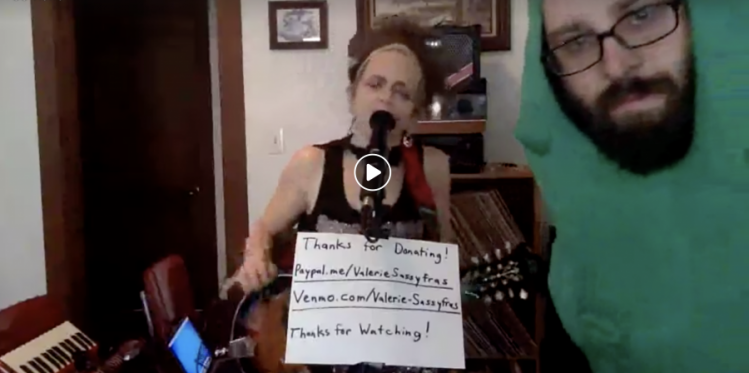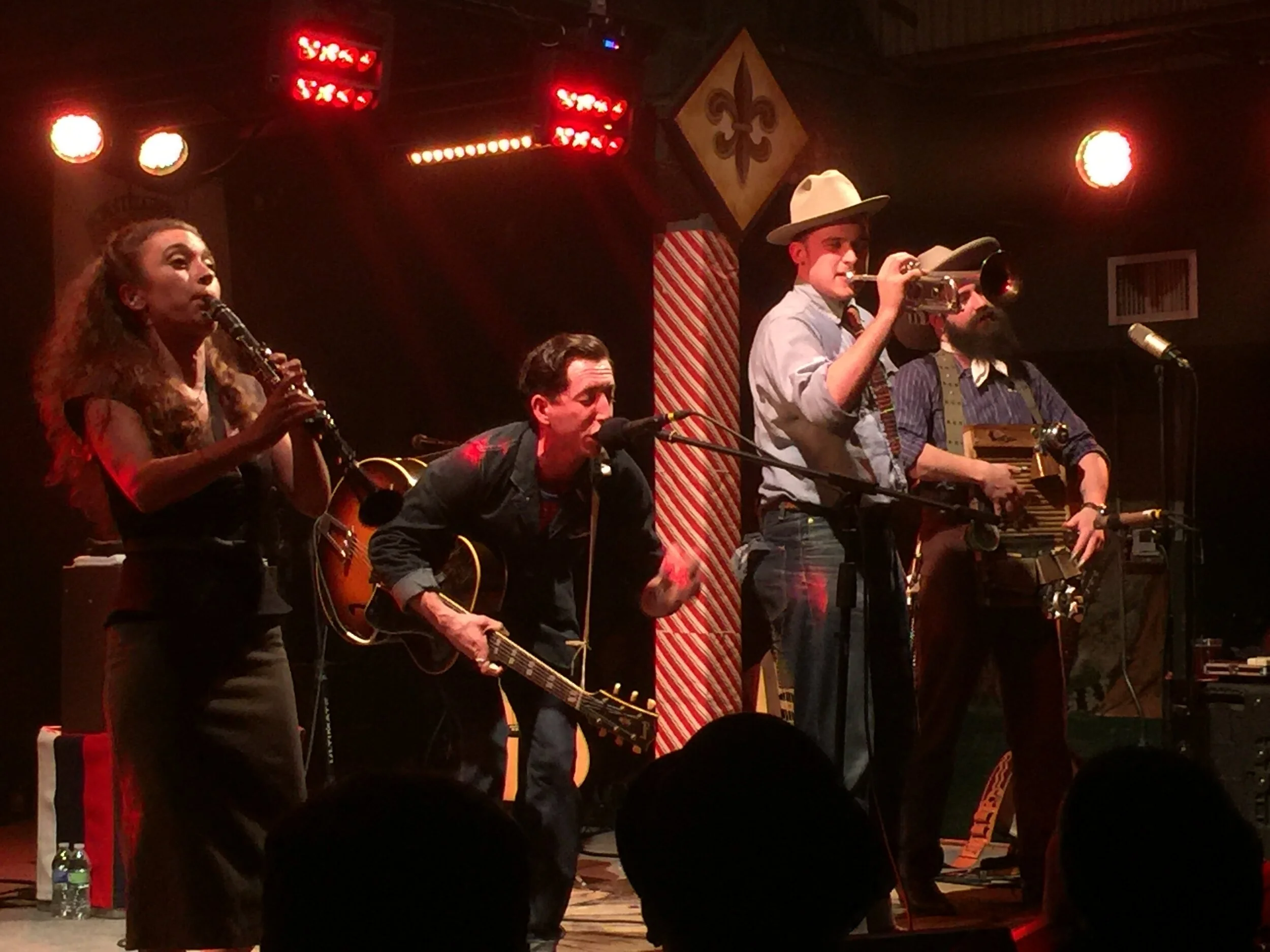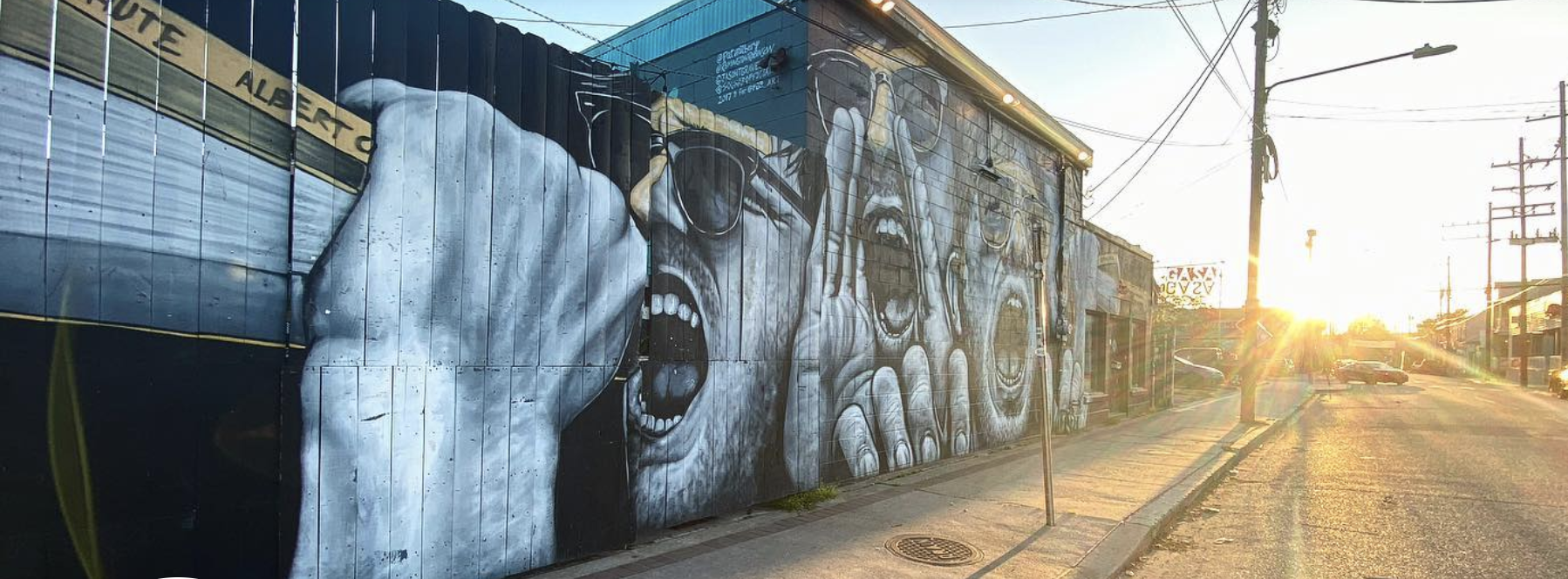Is Gasa Gasa a Sign of What's to Come?

Gasa Gasa from the outside, by Alex Rawls
COVID-19 has hit independent music venues particularly hard, and it’s not clear that help is coming.
On July 22, Gasa Gasa announced it was closing. Not just putting on the hurricane shutters, but throwing in the towel for good. The owners announced with regret that they were selling the bar and indie music venue that has been a staple of the Freret Street corridor since 2013. The cause of death was evident: yet another fatality of the Coronavirus. The closure of Gasa Gasa rendered a profound silence, turning New Orleans—one of the nation’s live music capitals—unrecognizably, noiseless. Gasa Gasa is the second live music venue fatality. d.b.a. on Frenchmen Street went on the market in March, though the decision to sell had been reached before the pandemic outbreak.
The COVID-19 virus has rendered our city into the unthinkable: a quiet place. Canceled festivals, empty bars, no second lines, no packed clubs. Instead, a sober silence has cast a five-month-long shadow. On Freret, Gasa Gasa’s neighbors add insult to injury. Domino’s and Blaze Pizza—two national chains—remain open while a local independent venue closes. The businesses aren’t in competition, and one’s survival doesn’t come at the expense of the other, but corporate chains have capital that independent venues don’t—particularly those that focus on indie rock and folk. Gasa Gasa was never positioned to survive for months without profit.
Principle Business Advisors listed the venue for sale at $100,000 and noted that the sellers are looking for a cash buyer. According to the listing, “This is an amazing opportunity to own a one-of-a-kind New Orleans music venue!” The reason for selling is COVID-19.
Michael Rivera, booking and marketing manager at Gasa Gasa, says that live music venues have been on thin ice for months now. “It's a heartbreaking reality, he says. “Not only are independent venues foundational to the entertainment industry, but they also have a great impact on local economies, especially in tourism hubs like New Orleans.”
For many Tulane and Loyola students, Gasa Gasa served as a launch pad into New Orleans’ live music. The venue was small, intimate, and perfectly dark. It was modest but trend-forward with a pleasant outdoor patio that functioned as a smoke-break hangout during set changes. Even amongst a gentrifying pocket of the once anonymous Freret strip, Gasa Gasa also seemed right at home in a city that often conceals improbable spaces behind commonplace doors or, in the case of Gasa Gasa, an aggressive, shouting mural.
Gasa Gasa’s closure also hurts New Orleans’ community of indie rock and folk musicians. They have never had the same opportunities as young jazz and funk musicians, and the venue gave them a place to play and a context where they made sense. Those musicians would still have to find ways to reach audiences even if Gasa Gasa wasn’t for sale, but its uncertain future as a venue makes theirs unpredictable too.
While happy to see the uptick in live-streaming concerts, Rivera expressed concern over the long-term sustainability of those creative ventures. “These things are great,” he says, “but unfortunately don’t yield the same monetary benefits as a traditional live show.” Money always seems to be the bottom line, but today the bottom line is that there is no money.
It has become clear that individual donation funds for struggling clubs simply won’t suffice. Crowdsourced revenue streams aren’t sustainable for an indefinite period of time, and venues like Gasa Gasa will be especially hard-pressed for funding. They don’t have the history and place in New Orleans’ musical culture that some venues do, so they can’t scare up donations with the fear that a part of New Orleans’ musical history might be dying. Obtaining federal funds will be crucial to securing the survival of cherished independent venues.
“Federal funding is the key to avoid a collapse of the independent music venue ecosystem,” Rivera says, “which is essential for touring artists of all sizes.” Rising to the urgency of the moment, musicians across Louisiana are centering their efforts on the passage of the RESTART Act, a bill that would provide loans to hard-hit businesses across the country. It’s not the only bill that has been proposed, but if passed, the legislation would initiate a new loan program to cover payroll, benefits, and fixed operating expenses for up to six months. In addition to providing immediate liquidity to small and medium-sized businesses, the RESTART Act would ensure loan forgiveness to widen the safety net. This would offer significantly more assistance than the Payroll Protection Program included in the CARES Act, which was intended to support small businesses but didn’t offer much for small venues who haven’t had any employees since March.
The National Independent Venue Association (NIVA) has taken the lead to secure federal funding for venues. On its website, you can sign a drafted petition that will be sent directly to your representatives. NIVA demands that Congress pass the RESTART Act, in addition to a request for several tax credits and continued unemployment insurance benefits for furloughed employees.
In a statement, Preservation Hall Creative Director Ben Jaffe called on Louisiana Sen. John Kennedy to co-sponsor the RESTART Act: “On behalf of Preservation Hall and the thousands of musicians who count on a vibrant music economy and entertainment industry here in Louisiana and New Orleans, we ask for your support and consideration in cosponsoring the RESTART Act. The RESTART Act will allow venues to access loans efficiently and flexibly … You know as well as I do the importance of music to our community and to our history and my family who have been operating Preservation Hall for 60 years.”
NIVA estimates that if coronavirus continues through the fall and if the government doesn’t extend funding, up to 90 percent of independent music venues could close. The iconic Tipitina’s, purchased in 2018 by the members of the band Galactic, joins other venues on the breaking point. In a recent interview, Galactic bassist Robert Mercurio lamented the venue’s uncertain future, citing thin margins and lost wages for bartenders, security, and production staffers. They’re working with NIVA to lobby Congress and map out potential alternatives to live shows, including a subscription-based live-streaming series where bands perform in front of an empty club. But they’re a band that “doesn’t have deep pockets” and will need to rely on luck, talent, and the generosity of devoted fans-- and especially the generosity of a stingy government-- to make it through the end of the year.
Gasa Gasa couldn’t make it to the end of the year, and without government assistance, it won’t be the last New Orleans venue on the market and looking to train new owners to get in the game.
How can New Orleans help its venues get open? We have a suggestion.






